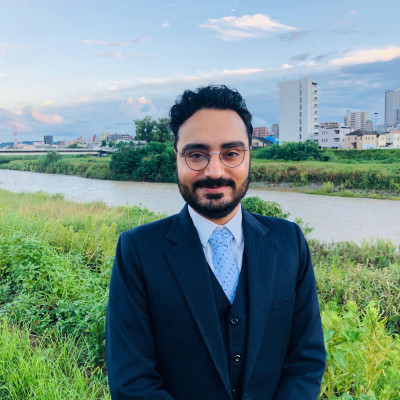Chhayankdhar Singh Rathore
Konan Women's University
Chhayankdhar Singh Rathore is a lecturer in the Department of English for Global Communication in the Faculty of Global Studies at Konan Women's University. He currently serves as the Co-coordinator of the Performance in Education (PIE) SIG. His areas of interest include performance in education, language acquisition, TESOL, CLIL, sociolinguistics, and World Englishes. Within performance in education, he is involved in the use of process drama, roleplays, debate, and presentation in English language classrooms.

Sessions
Drama in the time of Emergency Remote Teaching
The coronavirus pandemic of 2020 - 2021 led to the closure of schools and university campuses under infection prevention protocols and classroom teaching was entirely or partially replaced by Emergency Remote Teaching (Bozkurt & Sharma, 2020). The sudden switch to online instruction was a challenge that the entire academic community had to grapple with by adapting courses and teaching techniques to suit the various online learning platforms. While some courses were more suitable for this adaptation, others such as drama-based courses proved to be particularly challenging due to the remote nature of student participation. However, necessity often leads to innovation. In this presentation, the presenter will discuss how the pandemic-induced Emergency Remote Teaching led them to devise a new genre of drama-in-education – Process Radio Drama which was created to fulfill the daunting task of teaching a drama-based course over Zoom. The presentation will outline the challenge, the response, and the step-by-step procedure of conducting an online drama-based course for university students of English as a Foreign Language. This presentation aims to equip language teachers with a Process Radio Drama framework to facilitate the evolution of drama-in-education for online learning.
A Duo-ethnographic Analysis of Public Speaking
Duo-ethnography is a research methodology that can be effectively used for reflective practice as it involves two or more researchers juxtaposing their lived experiences and life histories to analyze and understand a phenomenon (Norris & Sawyer, 2016). In this presentation, two English language instructors teaching at a private university in Japan analyze the use of public speaking in English language learning. According to Girard, Pinrar, and Trapp (2011), public speaking can assist ESL classrooms by increasing students’ learning motivation and prompting participation and interaction. The presentation begins with an overview of the existing literature on public speaking in the English classroom. This is followed by an introduction to duo-ethnography and an outline of the methodology used for this research. The results and findings have been categorized into three areas: the role of public speaking in the language learning journey of the researchers, the impact of their past experiences on their current teaching beliefs regarding public speaking, and classroom practices that reflect how the researchers actually focus on developing the public speaking skills of their students.